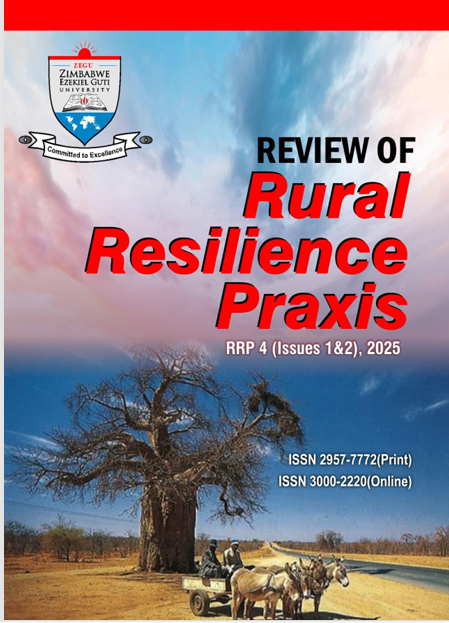Rural-to-Rural Displacement and the Socioeconomic Fallout of Land Redistribution and Disaster Risk Reduction: Lessons from Tokwe-Mukosi
DOI:
https://doi.org/10.71458/kybrp959Keywords:
land reform, climate change, climate justice, vulnerability, land rights, livelihoodsAbstract
The study examines the socioeconomic consequences of land redistribution and climate-induced displacement in the Tokwe-Mukosi region of Zimbabwe, concentrating on the 2014/15 flooding disaster and its repercussions. The research investigates how the convergence of coerced rural-to-rural displacements, insufficient disaster risk mitigation and contentious land redistribution policies intensifies vulnerability, poverty and social inequality among impacted households. The article employs desktop research to analyse the experiences of displaced rural communities, emphasising the obstacles they encounter in reconstructing livelihoods, obtaining resources and assimilating into new settlements. The analysis demonstrates that fragmented policies, insufficient stakeholder coordination and restricted community involvement in decision-making impede sustainable adaptation to climate-induced risks. The study places the Tokwe-Mukosi case within broader debates on climate resilience, social justice and land reform, highlighting the urgent need for inclusive, forward-looking strategies that centre the rights, voices and long-term resilience of marginalised rural communities in displacement and land redistribution efforts. The study calls for setting aside land for temporary or transitional use after disasters as part of reducing risk in rural areas. The study contributes to policy discussions on how to better connect land reform and climate adaptation to support fair and lasting development in rural Zimbabwe.




